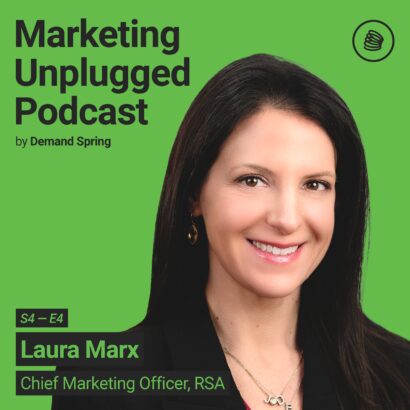It’s hard not to be impressed by ChatGPT. Heck, the tool even sent Google into a code red. If Google thinks it could potentially disrupt the world as we know it, it’s enough to give us pause and explore the implications for the marketing industry.
What is ChatGPT
In short, ChatGPT is an AI powered chatbot developed by OpenAI.
What sets ChatGPT apart from other AI powered chatbots is its ability to engage in natural conversations that are almost indistinguishable from those of a human. As a language model, ChatGPT predicts the next word in a sentence, making it capable of providing descriptions, answers, and solutions to complex questions. It’s a powerful tool with a wide range of applications, including uses for marketers.
Marketing use-cases
With budget and resource cuts becoming a reality for many marketing organizations in today’s economy, ChatGPT can support marketers as they are faced with the task of doing “more with less”.
For example, ChatGPT can help marketers with:
Keyword research
Market research
Let’s take things one step further and have the data formulated into a table.
Writing ad copy
Pretty cool, right?
ChatGPT’s limitations (spoiler alert: it’s not perfect)
Even with its impressive capabilities, ChatGPT is not a silver bullet. While it can assist marketers in an array of areas, it is not a replacement for a marketer.
First off, while the tool can generate responses to queries quickly, not all of the answers are correct. Despite the confidence and authoritativeness of answers, the chatbot has been known to spit out just plain wrong information — ChatGPT’s prompt page even warns users about this.
Mashable put ChatGPT to the test with the below fact-based query:
Image source: Mashable
The correct answer is “red”.
“But what about using ChatGPT just for writing content?” asks the resource strapped marketer in the back.
The answer to this question is yes and no.
It’s hard not to notice our social feeds filled with content ChatGPT has produced. And a lot of it is undeniably good.
ChatGPT can assist in generating content ideas, translating an unclear thought into an email, even writing the first draft of a blog post.
But ChatGPT does not know your brand voice. It does not know what your target persona is thinking, feeling, or doing. ChatGPT does not have the ability to think critically or possess in-depth knowledge of a specific industry or topic — all necessary for effective content creation.
This is all to say ChatGPT should be considered as another tool in the marketer’s arsenal, rather than a solution in and of itself.
Future impact of ChatGPT on buyer behaviors
As ChatGPT becomes more widely adopted, it is likely that there will be a shift in the way consumers seek and consume information. Rather than solely turning to Google search, consumers will also turn to ChatGPT to find information.
Will ChatGPT fully replace Google search? No.
But a hybrid future will still have a major impact affecting all areas of marketing from SEO, paid ads, to content marketing strategies. As with any major disruption to our industry (remember way back when the internet was something new?) marketers will need to evolve their strategies to align with changing consumer behavior. The silver lining is that we are still ways away from this reality and have time on our side to prepare.
Final thoughts
While ChatGPT offers a valuable solution to assist marketers, it is not a replacement for living, breathing, strategic marketers. It is a tool. And a tool is only as good as the person wielding it.
Viewed in a wider context, ChatGPT represents a major milestone in the progression of AI. We’ve had a front row seat to AI’s transformative potential on the marketing industry after which the future is clear: AI will play a pivotal role in marketing. To be best positioned to reap the benefits of AI, marketing organizations need to take a coordinated, pragmatic approach to embedding AI throughout their strategies.
There is still much more to be explored with AI. And we can help you get started. Reach out today to chat to one of our *real* consultants.










